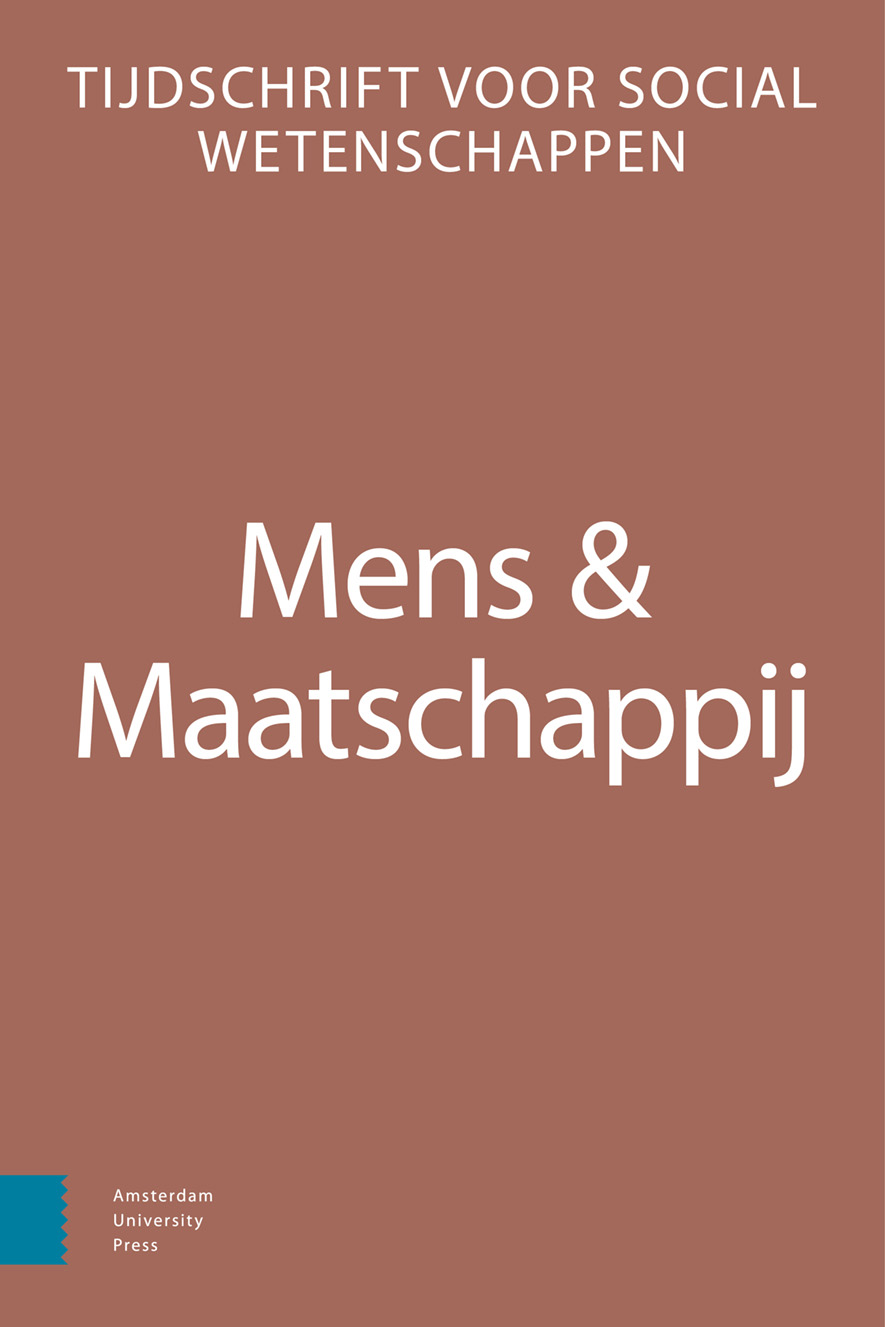- Home
- A-Z Publications
- Mens & Maatschappij
- Previous Issues
- Volume 94, Issue 1, 2019
Mens & Maatschappij - Volume 94, Issue 1, 2019
Volume 94, Issue 1, 2019
-
-
Hoe zwaar weegt technologie op de werk-privé weegschaal?
More LessAuthor: Marleen KramerAbstractHow much does technology weigh on the work-life balance scale?
A qualitative study showing the influence of personal technology usage at the workplace on work-life balance
This article shows through nine interviews how personal technology usage at the workplace influences how people with different roles experience their work-life balance (wlb). A distinction can be made between managers and non-managers. Managers experience the freedom to cross the borders between the work and life domains, while non-managers see this action as deviant behavior. As a result, managers use technology to be able to fulfill their private roles in the workdomain in order to compensate for their lacking time in the private domain. Non-managers don’t share the same freedom, and therefore experience a good wlb when they strictly divide their roles. In addition, parents with young children experience a better wlb because of technology usage. They use it to stay in contact with their children for whom they feel great responsibility. Parents with older children don’t feel the need to stay in contact all day and try to separate their roles. Furthermore, all respondents experience less satisfaction with the performance of their work role through personal internet use for relaxation (cyberloafing), resulting in a worsened wlb.
-
-
-
Vrouwen in leidinggevende functies
More LessAbstractWomen in positions of authority
Description and explanation of developments in the Netherlands from 1985 to 2008
Women still have limited access to positions of authority in the workplace. Although the slow progress in this regard is much debated, research shedding light on trends in women’s workplace authority remains scarce, particularly outside the US. Moreover, rigorous empirical tests of which processes drive developments in women’s access to authority positions are largely lacking. This study addresses these research gaps. We examine trends in women’s workplace authority and investigate what drove them, concentrating on the role of historical shifts in the composition of the female labor force, labor market conditions, and societal gender ideology. By focusing on the Netherlands, we complement prior studies in the US and Sweden. We use representative, detailed longitudinal data from the Dutch Labor Supply Panel. Results revealed an upward trend in working women’s likelihood of holding positions of supervisory authority between 1985 and 2008. This trend accelerated in later years. Changes in the composition of the female labor force regarding education and experience formed important drivers of this trend. The findings on compositional changes regarding family status and working hours were unexpected. Changes in the composition of the female working population appeared to differ from those in the total female population. As a consequence these changes led to a decrease instead of an increase in women’s authority. Shifts in contextual conditions were also not found to play a role in explaining the trend.
-
-
-
Het verschil met mijn broer Jan
More LessAuthor: Thijs DillenAbstractDisability is mainly approached from a clinical perspective which emphasizes the physical or mental impairements and the care disabled people need in order to survive. Very little is known about how disabled people experience the world and create meaning in their interactions with their environment. By analyzing the behaviour and interaction of my disabled brother Jan, I try to answer the following questions: (1) How does he experience the world, is he capable of meaningfull interaction and what does this tells us about human sociality? (2) Are the human sciences capable to elucidate these experiences which are unaccessible through conventional language? By using a phenomenological approach we will argue that Jan’s interaction with the world is meaningful in a way that it challenges our assumptions about how we perceive the concept of ‘sociality’. Further, we aim to show how a phenomenological way of analyzing is able to gain considerable insight in those experiences which are unaccessible through conventional language.
-
-
-
De mobiliseerbaarheid van huurflatbewoners voor de energietransitie
More LessAuthors: Jart Ligterink, Jim Kleijwegt & Arnout van de RijtAbstractNow that durable alternatives to energy from fossil sources have become technologically and economically feasible, the challenge of the energy transition is primarily one of mobilizing populations to act. Here we study the mobilizability of Dutch rental flat residents for sustainable energy alterations to their homes. We argue that the structure of the social network among residents will greatly affect its ability to spread information on energy alternatives and propagate cascades of green adoption behavior. Using a survey circulated in a rental flat in the Dutch city of Haarlem, we were able to map the social network of its residents and assess their willingness to incur costs and discomfort for uncertain future gains. Our analysis reveals a surprisingly cooperative population of low-income residents and a remarkably integrated network structure showing no sign of ethnic or religious segregation.
-
Volumes & issues
Most Read This Month


